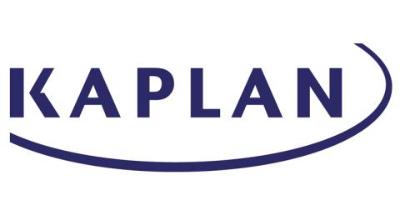What Comes Next After Incorporation?

What happens after a small business owner incorporates or forms a limited liability company (LLC) for their small business? The answer is there are still several items to check off your to-do list before launching the startup.
After choosing the right business structure, entrepreneurs need the following assets for their newly incorporated companies.
- File for a trademark.
- Find a registered agent.
- Obtain a tax ID.
- Apply business licenses.
- Build a website.
- Build the right team.
Here’s how entrepreneurs may obtain each asset to launch their business.
1. File for a trademark.
Do you have a unique name, design, symbol, phrase, or logo that identifies your brand and sets it apart from the competition? This is a trademark, an important business asset that represents your business and brand.
It’s critical that business owners work to protect these marks from being copied or plagiarized by applying for federal trademark protection. Prior to filing a trademark application, conduct a trademark search first. This search will allow you to see which marks have already been registered or are pending registration elsewhere. If your mark is available, you may file a trademark application to register the trademark at the federal level. This ensures you receive exclusive rights to the mark and may openly use it to market your business and its offerings.
2. Find a registered agent.
A registered agent is a person, or third-party company designated by businesses to receive service of process. Registered agents accept and organize legal documents they receive and deliver this paperwork to the business in a timely, confidential manner. This allows the business owner to complete the necessary paperwork — including filing annual reports and paying outstanding fees — to keep the business in good standing with the state.
Where can you find a registered agent? Some entrepreneurs may choose to act as their own RA. However, remember that acting as an RA means being able to meet state requirements for the role. For example, a registered agent needs to have a physical street address and must be available during general business hours to receive service of process.
Not all entrepreneurs are able to meet these requirements — and that’s okay. If you find you are personally unable to act as an RA, you may work with a third-party registered agent service. This ensures you will always have a reliable registered agent to act as the point of contact between your business and the state.
3. Obtain a tax ID.
If you have incorporated or formed an LLC, you have likely received an employer identification number (EIN) from the IRS.
What is an EIN? This is a federal tax ID that essentially acts as a social security number (SSN) for your business. It is nine digits long and lets the IRS know what businesses need to remit in terms of payroll and other employment-related taxes.
Obtaining an EIN is a legal requirement for most business structures. If, for some reason, you did not receive an EIN from the IRS you may reach out and inquire to learn more. Businesses that are unregistered, like sole proprietorships, may fill out Form SS-4 to obtain an EIN. Having this tax ID allows you to hire employees, open a business bank account, and establish business credit — all necessary items to check off your to-do list after incorporating or forming an LLC.
4. Apply for business licenses.
Most businesses need licenses to stay in operations. However, these licenses are often quite specific. A startup’s location, entity formation, and industry all play a key role in obtaining proper business licenses for running the business.
Check in with the Secretary of State to determine which licenses your business needs and if the business will need to apply for any relevant permits.
5. Build a website.
As of 2021, 71% of small businesses have a website. More entrepreneurs are building websites for their small businesses and enjoying the many benefits that come with increasing their online presence.
Some of these benefits include an increased amount of online visibility, particularly for websites that utilize SEO best practices in keyword and content creation. Having a website also allows small businesses to directly communicate with customers and may spotlight the “wins” your business receives, like positive online reviews from customers, outstanding media mentions, and a blog that offers advice and tips to readers.
6. Build the right team.
You have almost every nut and bolt necessary to launch your business. Before you launch, however, do not forget to build the right team.
This team may consist of individuals such as mentors and strategic advisors, legal professionals and those that work in finance and accounting, employees (if you have already hired a few!), and supportive family members and friends.
Surround yourself with team members that will provide perspective, answer your questions, share resources that help you achieve your goals, and encourage you to achieve your dreams as a small business owner.
Deborah Sweeney is the CEO of MyCorporation.com. MyCorporation is a leader in online legal filing services for entrepreneurs and businesses, providing start-up bundles that include corporation and LLC formation, registered agent, DBA, and trademark & copyright filing services. MyCorporation does all the work, making the business formation and maintenance quick and painless, so business owners can focus on what they do best. Follow her on Twitter @deborahsweeney and @mycorporation.
Share This Article
What's Trending?
Trending topics & tools for the CPA community
How Firms are Rethinking Reasonable Comp (Quick Video)
It’s a short video and makes the value of repeatable, data-backed approach clear (especially compared to spreadsheets, gut checks and one-off calculations).
Learn how 8am CPACharge delivers clarity and confidence for accounting firms.
8am™ CPACharge brings invoices, payments, and reconciliation together in a solution designed to make your day easier from start to finish.
Seniors on Social Security Could Face $460 Monthly Cut to Benefits
Jim Komoroski, RSSA®, is quoted in Newsweek, offering expert insight into the projected monthly cuts to Social Security benefits should Congress fail to act.
Resources
Valuable information provided by our sponsors.
Specialize in Social Security
Looking to enhance your retirement planning expertise? Your solution: pursue the Registered Social Security Analyst®...
CPAdirectory members have access to discounted auto and home insurance
At CPAdirectory, we think it's a good thing to provide our members with access to...
Free CPE Course: ChatGPT for Tax Pros — Limited Offer
CPAdirectory and CCH CPELink are giving you free access to the on-demand course: ChatGPT for...
PE Deals In Accounting: Valuations, Structure, Tradeoffs
In this webinar, you’ll hear from firm leaders and industry experts who will share real-world...
Stand Out as a Trusted Social Security Expert with the RSSA® Designation
Designed for CPAs, the Registered Social Security Analyst® (RSSA®) designation provides advanced training to help...
How Firms are Rethinking Reasonable Comp (Quick Video)
It’s a short video and makes the value of repeatable, data-backed approach clear (especially compared...












